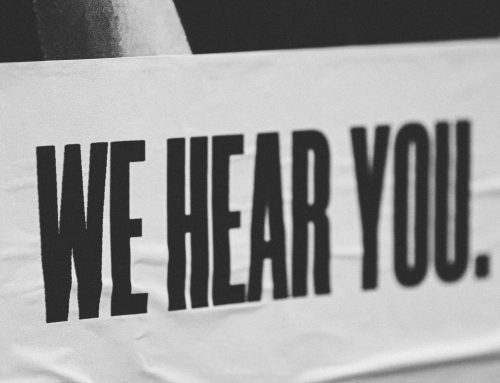Our Fundraising Search receives and reviews hundreds of resumes every year, so it goes without saying that we can quickly filter the most qualified candidates from those that are…shall we say… inflating their own skillset. However, even the most qualified candidate can be passed over due to a number of, unfortunately, common resume blunders. The following are 9 common mistakes we come across on a daily basis, made just as frequently by workforce “newbies” as seasoned professionals. The good news is that all of these are easily addressed.
Before applying for your next job, review your resume for these 9 common mistakes:
1 – Submitting a Resume Without a Cover Letter
If you are submitting a resume without a cover letter, then you are not submitting a complete resume. Combine your cover letter and resume into one pdf document to ensure the interviewer can easily file and retrieve all of your information quickly. Furthermore, if you are asked for references or additional information, resubmit your cover letter and resume with these included as one complete packet. The easier you make it for the interviewer, the more favorable your chances.
2 – Failing to Address the Most Common Questions in Your Cover Letter
Never underestimate the importance of an extremely well-written cover letter. I was once told (post interview) by a board member that the only reason they chose to interview me in the first place was because of my cover letter. (I got the job!). Answering the most common questions an interviewer will have says that you have done your homework on the organization. What are those questions?
- What exactly makes you interested in this position?
- What specifically interests you about the organization and how does it align with your professional aspirations and/or personal convictions?
- How do both of the previous points fit in with your current/past experience and where you see yourself in the future?
If you have trouble answering these questions, or cannot honestly answer them without
embellishing, then this might not be the position for you – and a good interviewer will
recognize that immediately.
3 – Reiterating in Your Cover Letter What They Will Read in Your Resume
While a common mistake of applicants is failing to submit a cover letter altogether, another common mistake is submitting a cover letter that simply reiterates what the interviewer will read in the resume. Not only is this boring to read, but you have missed the opportunity to make a stunning first impression. A cover letter is meant to state your purpose & desire in submitting your resume and provide additional information that will help make the decision to give you an interview or not – it is NOT the essay version of your resume.
- How has the culmination of your professional experience (which they will review in the attached resume) led you to the submission of your resume for this specific role?
- What personal traits have you honed over the years that make you a good employee and, specifically for this role? Give examples to back up your statements.
- Fill in the unanswered questions that will arise from your resume, especially if it paints a better picture than the resume will alone. Do not leave anything up to the interviewer to infer as they might fill in the blanks incorrectly. Do you live out of state – address it! Are you hoping to work remotely? Planning to relocate? Have you frequently moved positions after less than 2-3 years, especially with the last few roles – why? Why are you leaving your current position?
These questions will be asked, so be forward in answering them honestly.
4 – A Boring Resume Layout
Your resume does not have to be graphically designed, but it should be well thought out and visually appealing. A resume and cover letter is your first introduction to the interviewer and should reflect the professional that you are. Put more effort into it than just bullet points down a word document. Make sure the margins line up, spacing is accurate and sections are easily recognizable. There are hundreds of resume templates available on the internet. Do your research and pick one that speaks to your personality.
5 – Grammatical Errors
This seems like it would go without saying, but never never never submit a resume with even one grammatical error. There are many interviewers that simply will not consider even the most qualified candidate if they submit a resume with grammatical errors. Fair or not, interviewers interpret grammatical errors as lack of attention to detail. Have at least 3 other people read your resume and give honest feedback before you submit.
6 – Gaps in Employment
Put it all in there. Do not leave out a job simply because you took a left turn in your career journey and assume it is not relevant to the current position you are applying to. The interviewer will notice a gap in employment which could raise a red flag. Put it in there and address in your cover letter (see how important a cover letter is?).
7 – Making Bold Claims About Successes Without Backing Them Up
You should absolutely include all professional successes in your resume. But a common mistake is making these statements while failing to provide quantifiable stats to back them up. If you are including statements such as “consistently surpassed goals” but not stating those goals and how you surpassed them, you have missed out on a chance to prove what you are capable of. “Increased major giving by 25%” – really? How? “Responsible for leading strategic planning team” – Which resulted in what? Failure to fully develop these claims can fall flat to an interviewer and has the potential to sound exaggerated, especially if the entire resume reads this way.
8 – Submitting the Same Resume for Every Position
One resume does NOT fit all. Rearrange the job responsibilities of your current/most recent position(s) so that those most relevant to the job you are applying for appear first. If the most important responsibility of the position you are applying for is buried 4-5 bullet points into your current roles’ description, it screams that you either didn’t completely read the job description, that you don’t fully understand what you’re applying for or, even worse, that you’re too lazy to put in the effort to update your resume.
9 – Inconsistencies Between Your Resume & Social Media
In this day and age, it should go without saying that interviewers will review your social media accounts. If position titles, employment dates, etc. do not match exactly to what you listed in your resume, this could once again raise some red flags of attention to detail or even accuracy of your resume. And while we are on the topic of social media, now’s a good time to go back through all your social media accounts and ensure there is not anything that an employer would find off-putting. This goes beyond just inappropriate pictures. Political rants, negative posts about previous employers or anything that shows you spending your personal time in a manner that does not align with the organization’s mission can send your resume directly into the trash.
While common, all 9 of these resume blunders can easily be circumvented by spending just a little extra time reviewing your cover letter and resume before EACH submission. Trust me, that extra effort will not go unnoticed. Now go out there and wow them!






Leave A Comment